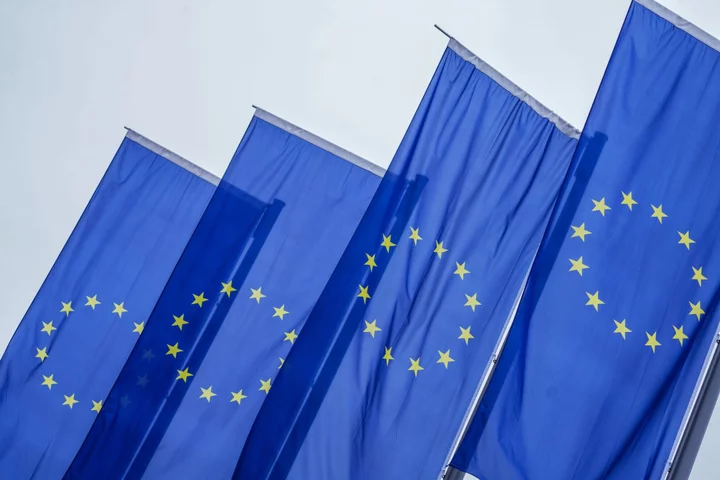After years of unfettered growth, the providers of ESG ratings will soon have to adjust their businesses to comply with new regulations or face hefty fines if they fail to comply, according to a draft document seen by Bloomberg News.
The proposed legislation, due to be unveiled next week, means providers of ESG ratings that also offer other financial services will be forced to keep those businesses separate to avoid conflicts of interest. Business areas that could present such a conflict of interest include consultancy services, the issuance and sale of credit ratings, or the development of benchmarks, according to the document.
The introduction of formal rules marks a huge shift for an industry that’s mushroomed in recent years, and whose scores have been instrumental in steering vast sums of capital into investments despite the absence of meaningful regulatory oversight. Funds marketed as targeting environmental, social and good governance goals sit on more than $2 trillion in assets, Bloomberg Intelligence estimates.
In its draft proposal, the EU said “the current ESG rating market suffers from deficiencies and isn’t functioning properly.” As a result, “confidence in ratings is being undermined,” it said.
The decision follows a lengthy consultation process that exposed a serious lack of confidence in ESG ratings among market participants. E3G, a climate think tank, said it’s expecting the proposed legislation to result in the standardization and comparability of ESG ratings, as well as transparency around the methodology and data used. It’s also expecting that the market will be limited to providers that get authorization from the EU to sell ratings.
“The introduced measures will aim to reflect the market demand for improved ESG ratings as one of the key data points for investment decisions,” E3G said in a statement. “At the moment, around a third of consultation answers assessed the quality of ESG ratings as not good enough, illustrated by the low correlation of results from different providers.”
The EU’s draft proposal, which still needs to be negotiated by the European Parliament and EU member states and may yet be subject to changes before its official release, has implications for companies including Moody’s Corp., MSCI Inc. and S&P Global Inc., all of which offer ESG ratings in combination with other services.
Bloomberg News parent Bloomberg LP provides access to third-party ESG ratings, alongside its proprietary ESG scores and other services.
The timeline for passing the proposal, which was drafted by the European Commission, is tight with EU elections scheduled for next June.
ESG ratings providers could face fines of up to 10% of total annual net revenue for violating the new rules, under the draft proposal. The European Securities and Markets Authority also could nullify authorization to provide ratings. The new legislation is likely to go into effect during the second half of 2024, according to the draft.
ESG ratings providers will be expected to disclose the following:
- Overview of methodologies, including whether analysis is backward or forward-looking, and if they are based on scientific evidence
- Statement on whether the rating’s objective is to score risks, impact or “some other dimensions”
- Information on whether the rating aggregates environmental, social and governance factors or applies to only one
- If an aggregated score, information on the weighting of E, S and G in the calculation
- Use or not of artificial intelligence to collect data and/or assign scores
- Any limitations on data sources
The EU Commission said its research found that “each ESG rating provider follows its own rules, with a lack of clarity as to what they do and how they do it.” Due to such failings, calls for reform have been longstanding. The International Organization of Securities Commissions called for more oversight back in November 2021.
The EU wants ratings’ providers to make clear and public what their data sources are and what methodologies they use to assign scores. It also wants raters to detail the characteristics of their scores. The information can then be used by investors and other users to select ratings’ companies, according to the draft proposal.
The EU isn’t proposing that it tell ratings providers how to score companies, with regulations instead focusing on issues of transparency, consistency as well as conflicts of interest.
The EU Commission identified 59 ratings companies, roughly half of which are located in Europe. It didn’t single out any companies by name.
Providers would be required to be authorized by the European Securities and Markets Authority to operate in the EU. The proposal excludes ESG ratings designed by banks and other financial market participants intended for in-house only use.
Demand for ESG ratings is expected to climb as companies comply with the EU’s expanding suite of sustainability legislation. That includes from issuers of green bonds under the EU’s new Green Bond Standards.
The European Commission is set to present a sustainable package next week that also includes new taxonomy criteria covering environmental objectives and plans to boost transition finance.
(Adds comments from E3G from fifth paragraph. An earlier version was corrected to say Bloomberg LP provides ESG ‘scores’ instead of ‘ratings’)









